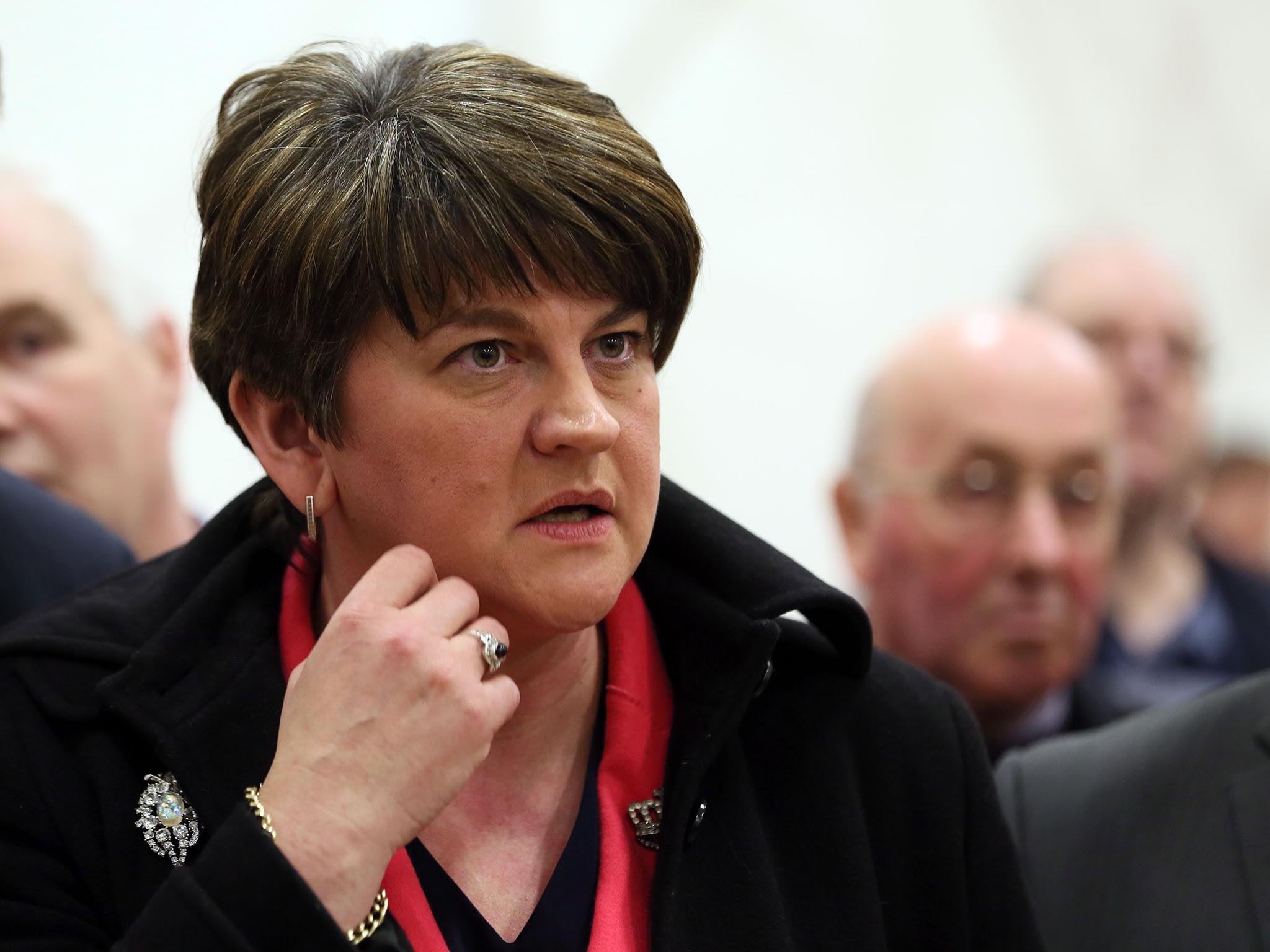Northern Ireland isn't likely to reach a consensus any time soon
As talks stall and another election seems imminent, the best we can hope for in Northern Ireland is a state of political drift

Your support helps us to tell the story
From reproductive rights to climate change to Big Tech, The Independent is on the ground when the story is developing. Whether it's investigating the financials of Elon Musk's pro-Trump PAC or producing our latest documentary, 'The A Word', which shines a light on the American women fighting for reproductive rights, we know how important it is to parse out the facts from the messaging.
At such a critical moment in US history, we need reporters on the ground. Your donation allows us to keep sending journalists to speak to both sides of the story.
The Independent is trusted by Americans across the entire political spectrum. And unlike many other quality news outlets, we choose not to lock Americans out of our reporting and analysis with paywalls. We believe quality journalism should be available to everyone, paid for by those who can afford it.
Your support makes all the difference.If history is much guide, the most likely prospect for Northern Ireland’s politics in the short term is drift.
While the recent history of the power sharing executive has been mostly stable and successful – including the unlikely partnership between the now departed Ian Paisley and Martin McGuiness, the hard men of both communities in their time – the prior history of the province up to and including the Troubles has been of one failed political initiative after another, and a lot of waiting around and talking.
Almost a century after its formation as the part of Ireland retained by the British after the rest of the island won its independence, Northern Ireland enjoys a greater degree of popular consensus about its constitutional arrangements than ever before. That is what is now being jeopardised by the row between Sinn Fein and the Democratic Unionist Party.
Another round of elections beckons, which will most likely solve nothing and simply be a mildly stimulating interlude before a return to drift. No side, and least of all the Secretary of State himself, James Brokenshire, actively wishes to see a return to direct rule from Westminster. From that, and the prospect of a “hard border” with the South, some fear that the dying embers of violence could start to flare up. Drift is preferable to that, for all concerned.
In this particular standoff, it is unionism that has the most to lose. Another round of elections could see Sinn Fein edge ahead to first place in the elections, and thus have a claim to the role of First Minister. Although there can be no First Minister without a Deputy – it is more of a co-chair than a traditional hierarchical constitutional pairing – the symbolism and the humiliation of the once dominant Unionist tradition would be plain.
Sinn Fein, alongside the non-sectarian Alliance Party, has the best of the political momentum now, and the DUP and the middle-class and moderate Ulster Unionist Party are looking tired and lacking strong leadership. Both sides, it is worth mentioning, miss the roles played by Paisley and McGuiness, whose turbulent histories gave them the authority to take risks and to act in the best interests of all the people in the six counties. Their successors, through no necessary fault of their own, lack that heft.
The sensible thing for the DUP to do now would be to have their leader and former First Minister, Arlene Foster, stand aside while the official inquiry into the scandal of a misbegotten energy scheme is completed. That is the right thing to do in any case, as she was so closely involved in the mess. The Unionists can still take the First Minister’s chair, and the prestige that goes with it, and business as usual can, more or less, resume.
The DUP would also be well advised to compromise on the vexed question of the Irish language and resolving some unfinished questions from the Troubles, as Sinn Fein ask. None would hurt their position, and would be a powerful indication that they had indeed put sectarianism behind them. Ms Foster’s handshake with Michelle O’Neill, McGuiness's successor, at the latter’s recent funeral was a sign that she and her party are capable of flexibility.
There is much excited talk, post-Brexit, about a united Ireland – like an independent Scotland, another unintended consequence of the UK voting to leave the EU. That seems overdone, but Sinn Fein plainly feel that they have stumbled upon their best chance of achieving their ultimate goal since partition itself, and things are going their way. As such a state of affairs would destroy the very purpose of Ulster unionism, its leaders ought to realise that any compromise with republicans and nationalists is preferable to that. They might also reflect on how some loyalists might react, with a return to violence or “resistance”. The DUP has some very hard thinking to do as they drift towards the prospect of Stormont giving way to rule from Dublin and Brussels.
Join our commenting forum
Join thought-provoking conversations, follow other Independent readers and see their replies
Comments